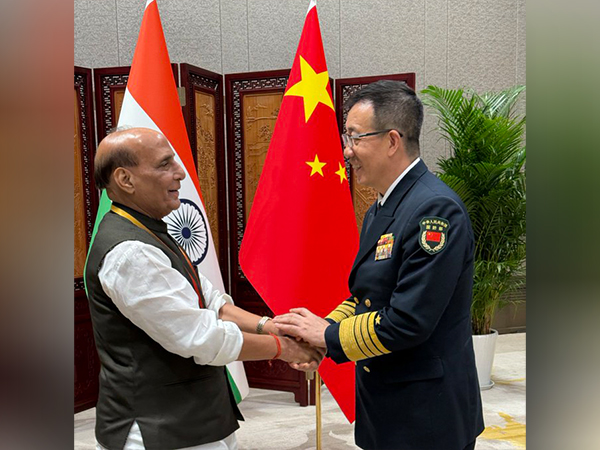
"Silence is dangerous for democracy, there has to be noise": Union Minister Kiren Rijiju tells youth at mock Parliament session
Jun 26, 2025
Shimla (Himachal Pradesh) [India], June 27 : Union Parliamentary Affairs Minister Kiren Rijiju on Wednesday addressed youth participants at a Mock Parliament session in Shimla, urging them to embrace the spirit of democratic debate and understand the vibrancy of India's parliamentary democracy, while also reflecting on the lessons from the Emergency era of 1975.
"Democracy must remain alive and active. In a parliamentary system, if there is no voice, it's a form of silence. And silence is dangerous in a democracy," Rijiju said while speaking to the students.
He reminded the audience of the 1975 Emergency, saying it was a time when the Constitution and all democratic institutions were suspended, and all power was concentrated in the hands of one person.
"During the Emergency, everything was suspended. Power was vested in one individual, and the Constitution was effectively set aside. Our Union Cabinet has passed a resolution to raise awareness across the country about the atrocities committed during that period," Rijiju stated.
Rijiju addressed the frequent public perception that Parliament doesn't function properly due to repeated adjournments and disruptions, saying this view is largely shaped by limited media coverage.
"Many people say that Parliament is always in uproar and nothing happens. But that's not the complete picture. What the media shows headlines about adjournments is what people see. But Parliament continues to function," he said.
He explained that even when the House is adjourned temporarily, deliberations continue, and crucial discussions and decisions are still carried out.
"Even if there are repeated adjournments, discussions continue. Important debates are held. Our Parliament is functioning in a very productive way. Sometimes, when a major issue arises, the House is adjourned for a while, but it resumes. This is normal in any vibrant democracy," he said.
Emphasising that debate and dissent are central to parliamentary functioning, Rijiju said that noise in Parliament should not be seen negatively.
"In our parliamentary democracy, there has to be noise. If there is no voice, then it is not a democracy. Uproar is about raising voices. People are allowed to speak and raise issues, it's a sign of life, not chaos," he said.
"I have been on both sides, ruling and opposition. When voices echo in the House, it is a sign of democracy's health. We should not view it as negativity," he added.
He told the youth that in states like Himachal Pradesh and Arunachal Pradesh, where the number of MPs is limited, it is even more important to make their voices impactful.
"States like Uttar Pradesh have 80 MPs, Maharashtra has 48. But from smaller states like mine, if we have fewer MPs, we must ensure our voices are heard through substance, not by breaking chairs," Rijiju remarked.
Offering practical advice on public speaking and legislative debate, Rijiju said youth must focus on relevance, clarity, and brevity.
"Long speeches don't make an impact. Speak only as much as is required and relevant," he advised.
"If people want you to stop speaking, it may mean your point has been made. But if people look forward to your speech, that's when you know your words are meaningful," he added.
He also explained the structure of parliamentary debates, from statement of purpose to allegations and counter-allegations, and how larger parties get more time based on their strength.
"Whether it is a big bill or the President's address, debate time is allocated according to party strength. Ultimately, the minister responds at the end. Always focus on the quality of your arguments, not quantity," Rijiju said.
Calling mock parliament an important exercise for democratic education, he urged the students to practice constructive, rules-based debate, which reflects the spirit of India's vibrant democratic ethos.
"This is a golden opportunity for you to learn how real parliamentary systems work. The beauty of Indian democracy lies in its diversity of voices, and that must always be respected," Rijiju added.























